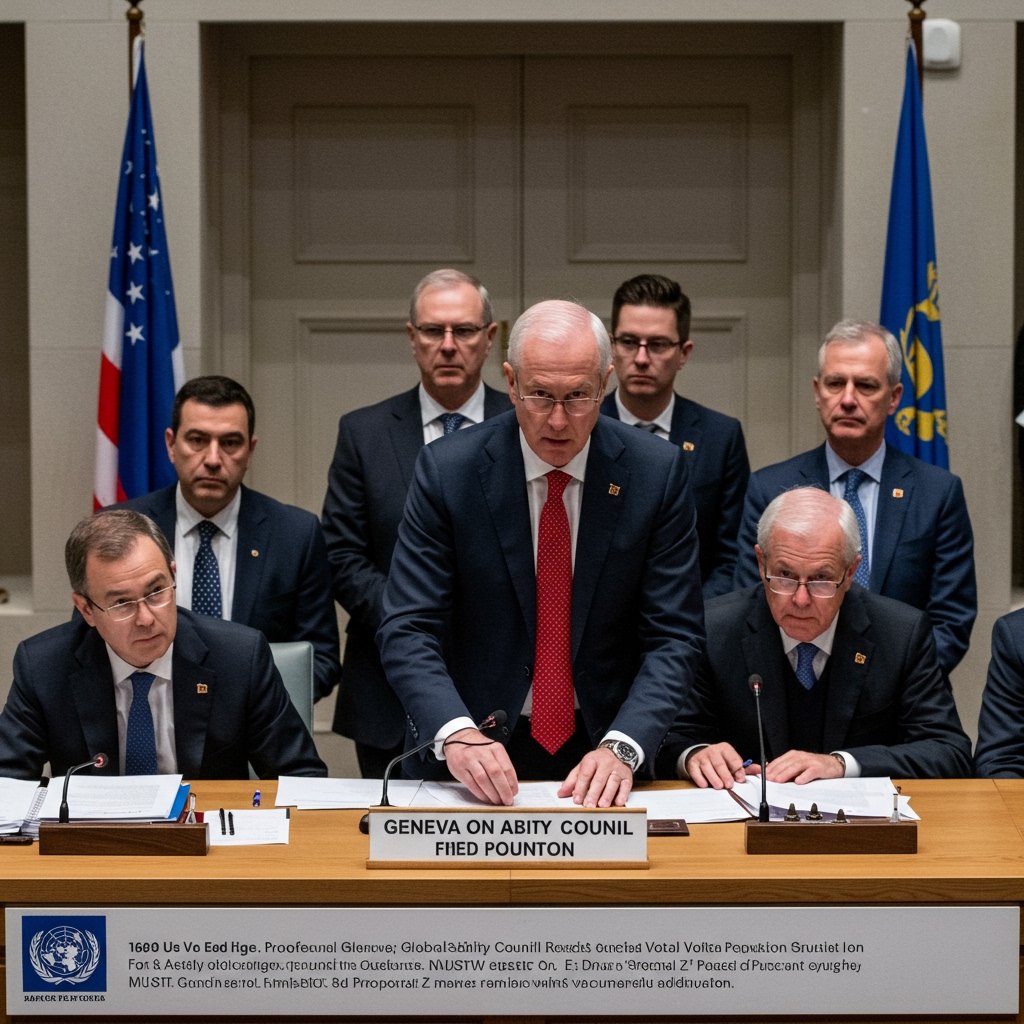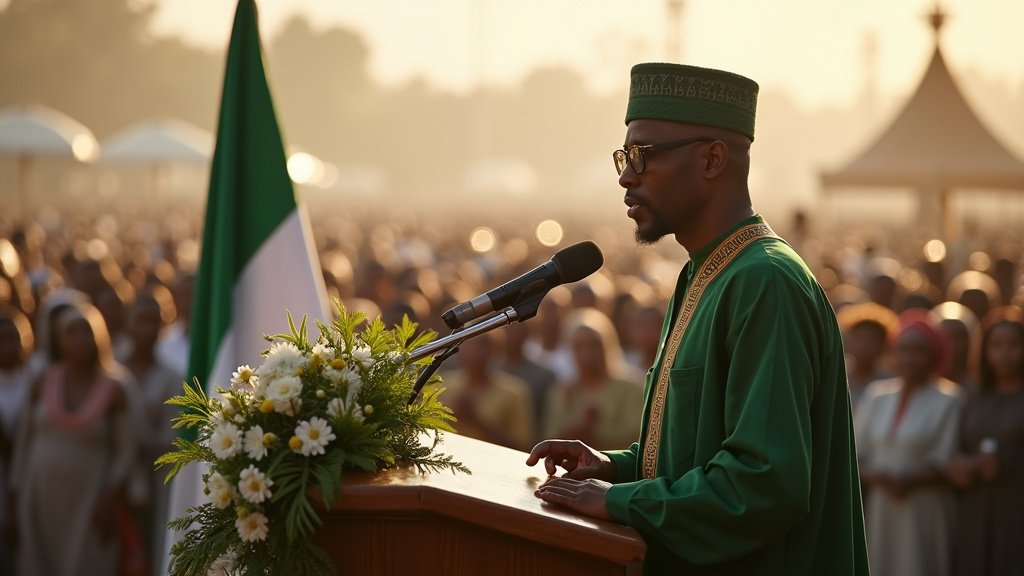A Pivotal Moment in Geneva
Diplomats and international observers are gathered at the Global Stability Council headquarters in Geneva today, June 6th, anticipating a critical vote that could potentially alter the course of a devastating conflict. The focus is on “Proposal Z,” a comprehensive ceasefire plan painstakingly developed over weeks of intense negotiations. This proposal is specifically designed to bring an end to the protracted and violent conflict between Nation A and Nation B, a crisis that has gripped the region and drawn significant international concern.
The atmosphere within the Council chambers is reportedly tense but hopeful, reflecting the high stakes involved. The vote scheduled for today is the culmination of extensive diplomatic efforts aimed at finding a viable pathway to peace where previous attempts have faltered. The outcome will determine whether a carefully constructed framework for de-escalation and eventual resolution can be implemented, or if the conflict is set to continue, deepening the humanitarian crisis.
The Conflict’s Toll and the Search for Peace
The conflict between Nation A and Nation B has caused immense suffering, resulting in a severe humanitarian catastrophe. Since January 2024 alone, the violence has escalated significantly, leading to the displacement of over 2 million people from their homes. These displaced populations face urgent needs for shelter, food, medical care, and security, placing an enormous burden on regional resources and international aid organizations. The widespread destruction of infrastructure, disruption of essential services, and persistent threat to civilian lives underscore the urgent need for a cessation of hostilities.
The international community, including major global powers, has exerted considerable pressure on both Nation A and Nation B to find a peaceful resolution. The Global Stability Council, as the primary international body tasked with maintaining global peace and security, took the lead in brokering discussions. Council President Jian Li has been instrumental in facilitating the complex negotiations, engaging with representatives from both nations, often in marathon sessions behind closed doors, to bridge divides and find common ground on sensitive issues.
Inside ‘Proposal Z’: Key Provisions
“Proposal Z” represents a multi-faceted approach to achieving a sustainable ceasefire and paving the way for future peace talks. The draft proposal outlines several key components considered essential for de-escalation and stability. A primary element is a phased withdrawal of forces from forward positions by both Nation A and Nation B. This sequenced process aims to create distance between the opposing armies and reduce the risk of accidental or intentional confrontations.
Another crucial provision is the establishment of a demilitarized zone (DMZ) along the shared border. The proposal specifically targets the area near Cityville for this zone, a location that has seen significant fighting and civilian impact. The DMZ is intended to serve as a buffer, preventing direct military engagement in a highly sensitive region. To ensure compliance and provide security within this zone, the proposal calls for the deployment of 500 UN peacekeepers. These peacekeepers would be tasked with monitoring the ceasefire, verifying troop withdrawals, and reporting any violations to the Global Stability Council.
Divergent Views from Belligerent Nations
While the proposal has reached the voting stage, indicating some level of convergence, significant differences and reservations remain between Nation A and Nation B regarding specific details. Nation A’s representative, Ambassador Anya Sharma, speaking yesterday ahead of the vote, conveyed a sense of cautious optimism regarding the proposal. Her statement suggested that Nation A sees potential in “Proposal Z” as a framework for ending the violence, while perhaps acknowledging that compromises were made during the negotiation process.
In contrast, Nation B’s chief negotiator, Dr. Ben Carter, publicly expressed reservations, highlighting specific points of concern within the draft. Dr. Carter’s reservations reportedly focus on the timelines outlined for troop withdrawal, specifically citing paragraphs 7b and 9d of the proposal text. The details of these paragraphs have not been fully disclosed, but Nation B’s hesitation suggests potential disagreements over the speed or sequencing of withdrawal, which could be tied to security concerns or logistical complexities involved in relocating forces.
The Road to the Vote: Intense Diplomacy
The period leading up to today’s vote has been characterized by weeks of intense, often challenging, negotiations. Facilitated by Council President Jian Li, these discussions have involved intricate bargaining over territorial issues, security guarantees, and the practicalities of implementing a ceasefire and withdrawal. The pressure from global powers has been a constant factor, with major nations leveraging diplomatic and economic influence to push both sides towards an agreement. These external efforts have underscored the international community’s deep concern over the conflict’s regional destabilizing potential and humanitarian cost.
Negotiators from both Nation A and Nation B, along with Council representatives, have worked tirelessly to refine the proposal, attempting to address each other’s core concerns while preserving the overall integrity of the peace plan. The current version, “Proposal Z,” represents the maximum extent of agreement reached through this arduous process, balancing the demands and concessions of both parties against the imperative to halt the violence.
The Stakes of the Decision
Today’s vote at the Global Stability Council is arguably one of the most significant diplomatic events concerning this conflict to date. A ‘yes’ vote would authorize the implementation of “Proposal Z,” setting in motion the mechanisms for a ceasefire, troop withdrawal, and the deployment of peacekeepers. This would offer a tangible path towards ending the hostilities and creating space for potential political negotiations.
A ‘no’ vote, or a failure to reach consensus, would represent a significant setback. It would mean returning to the drawing board or, worse, witnessing a further escalation of the conflict, with continued suffering for the civilian population and increased instability in the region. All eyes are now on the members of the Global Stability Council as they deliberate and cast their votes on this crucial proposal, holding the immediate fate of peace for Nation A and Nation B in their hands.





